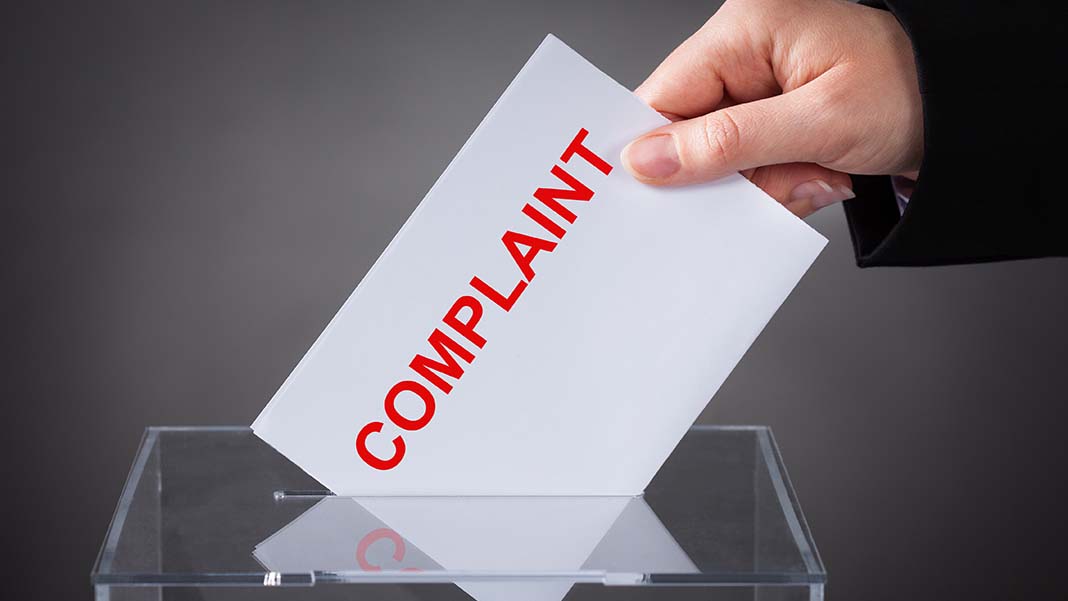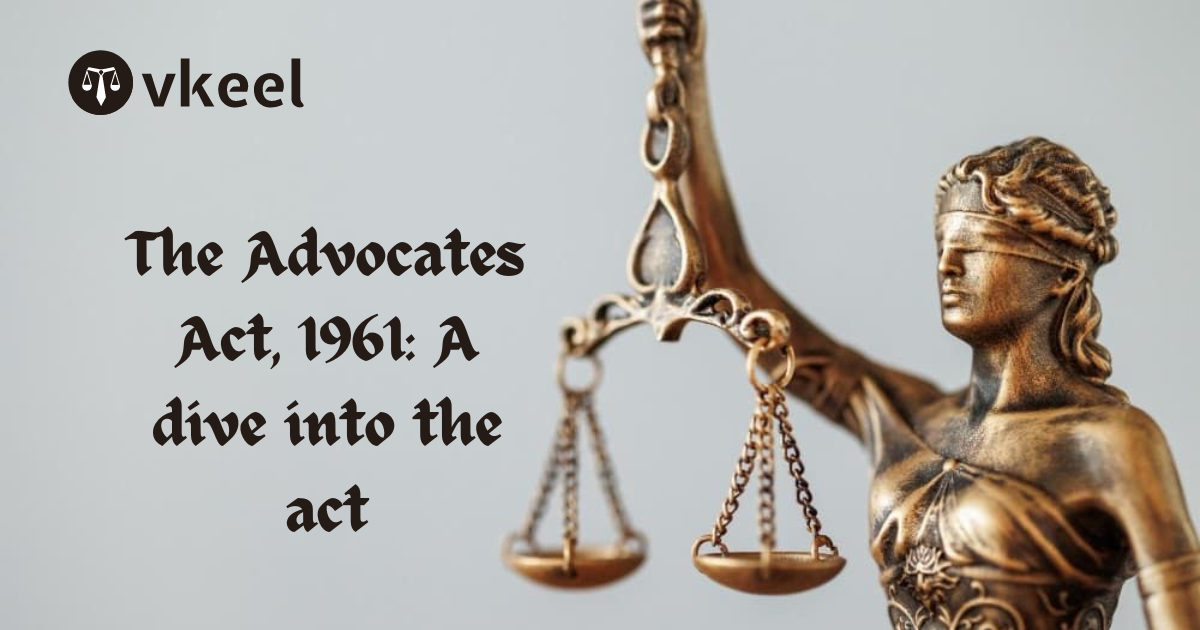How can a private complaint be filed?
By Kishan Dutt Kalaskar
Whenever a person faces a misdeed or wrongdoing by someone else, the first resort that comes to mind is filing a complaint with the police. This initial complaint is known as the FIR; it is filed against the person who has done the wrong.
Introduction
The fundamental purpose behind documenting an FIR is to set criminal law into movement. A First Information Report is the first statement in a criminal case recorded by the police and contains the essential information including but not limited to the wrongdoing/crime, place of commission, time, who was the person in question. The definition for the First Information Report has been given in the Code of Criminal Procedure, 1973 by the prudence of Setion154, which sets down the first information report as: “Every information relating to the commission of a cognizable offence, if given orally to an officer in charge of a police station, shall be reduced to writing by him or under his direction, and be read Over to the informant; and every such information, whether given in writing or reduced to writing as aforesaid, shall be signed by the person giving it, and the substance thereof shall be entered in a book to be kept by such officer in such form as the State Government may prescribe in this behalf”.
In one of the cases related to First Information Report, the Honourable Supreme Court held that “After all registration of FIR involves only the process of entering the substance of the information relating to the Commission of a cognizable offence in a book kept by the officer in charge…as indicated in Sec. 154 of the Code”.
Consult with: Top Lawyers of India
In the landmark judgement of T.T.Antony vs State of Kerala & Ors., the honourable Supreme Court of India, in relation to section 154 of Cr.PC laid down the following – “Information given under sub-section (1) of Section 154 of Cr.P.C., is commonly known as the First Information Report (FIR), though this term is not used in the Code….And as it’s nickname suggests, it is the earliest and the first information of a cognizable offence recorded by an officer in charge of a police station”.
Who can file an FIR?
FIRs can be filed by a victim, an observer or another person with information of the crime according to the laws set down under section 154 of the Cr.P.C., the complainant can provide data about the offence either in composed form or orally. Moreover, as to who can file an FIR, the Apex Court of India has observed that: “Section 154 does not require that the Report must be given by a person who has personal knowledge of the incident reported. The section speaks of information relating to the commission of a cognizable offence given to an officer in charge of a police station”.
The police are obliged to read the FIR back to the complainant on the off chance that it is speaking to them orally to forestall the chance of any distinctions in the oral and the written versions. Further, it is the obligation of the complainant to answer to the police face to face in the event that he had given the information on a telephone. In the matter of Tohal Singh versus Territory of Rajasthan, the High Court of Rajasthan had observed that: “if the telephonic message has been given to the officer in charge of a police station, the person giving the message is an ascertained one or is capable of being ascertained the information has been reduced to writing as required under S.154 of Cr.PC and it is a faithful record of such information and the information discloses commission of a cognizable offence and is not cryptic one or incomplete in essential details, and it would constitute FIR”.
In a situation wherein the police went to the crime scene hearing rumours and recorded a statement at the police station, it was held that in conditions of the case that announcement could be acknowledged as FIR. The police are needed to give a duplicate of the FIR to the complainant for free of charge.
Talk with: Best Lawyers of India
What are cognizable and non-cognizable offences?
Cognizable offences: Offences that are characterized in subsection (c) of area (2) of Civil Procedure Code 1908, in these offences, the police can capture an individual without a warrant, according to the primary schedule of the Criminal Procedure Code, 1973 and after arrest accused will be produced before the magistrate, and he will analyze the issue, and he may require the police to examine the issue. Cognizable offences are both bailable and non-bailable. These offences are serious in nature for instance murder, assault, dowry death, abducting, robbery, criminal breach of trust, unnatural offences, revolting outfitted with the destructive weapon, taking up arms against the government of India.
Non-cognizable offences: The category of offences as per Cr. PC in which Police can neither register the FIR nor can investigate or effect arrest without the express permission or directions from the court), it will be held lawful.
Can the police refuse to file an FIR?
In certain cases, the police may decline to lodge a first information report (FIR). It can be legal as well as illegal depending on a case to case basis. In situations where they don’t have jurisdiction or isn’t in their lawful ability to take insight or the offence is of non-cognizable.
In any other case, where the police do not record the complaint for no reasonable and lawful ground, it is in opposition to the law. At the point when the police refuse to register the FIR on the ground that it purports to be a non-cognizable offence, they should inform the informant and direct him to file a grievance to the magistrate. In the circumstances, where the offence submitted is past the regional ward of a police headquarters, data ought to be recorded and sent to the proper police headquarters having purview, in any case declining to record on this ground will add up to forsakenness of obligation.
The necessity of enlisting any data is additionally founded on the understanding that the FIR is certainly not a meaningful bit of proof and must be utilized to repudiate or substantiate the contents according to Sec. 155(1) of the Cr.PC.
Consult with: Top Lawyers of India
If the police get information about the commission of a non-cognizable offence submitted in the ward of the police headquarters, they ought to enter the substance of the case in the station journal and allude the witness to move toward the concerned Magistrate.
Code of Criminal Procedure code, 1973
Section154. states that ‘Any individual wronged by a refusal with respect to an official in charge of a police station to record the data in context to subsection (1) may send the substance of such data, recorded as a hard copy and by post, to the Superintendent of Police concerned who, whenever fulfilled that such data unveils the commission of a cognizable offence, will either research the case himself or direct an examination to be made by any police subordinate to him, in the way gave by this Code, and such official will have all the powers of an official in charge of the police station in relation to that offence.’
Sub-section(1) of section 156 is the power of Police to investigate a cognizable case. Any official responsible for a police station may, without the direction of a Magistrate, examine any cognizable case which a Court having jurisdiction over the local area the restrictions of such station would have the ability to ask into or attempt under the arrangements of Chapter XIII.
Sub-section (c) of Section166(A): Whoever, being a public worker neglects to record any information given to him under sub-section(1) of section 154 of the Code of Criminal Procedure, 1973, according to cognizable offence culpable under section 326A, section 326B, section 354, section 354B, section 370, section 370A, section 376, section 376A, section 376B, section 376C, section 376D, section 376E or section 509, will be punished with thorough detainment for a term which will not be under a half year however which may extend out to two years, and will likewise be subject to fine.
Remedies available
In the event that the concerned official in control does not register a first information report about the commission of a cognizable offence inside his regional locale under Section 154(3), the source can move toward the Superintendent of Police or the Commissioner of the police with a written complaint. In the event, when a complaint is filed, the SP of the Commissioner is satisfied that the complaint unveils a cognizable offence, he may either research the case himself or direct his subordinate to enlist the FIR and start the examination pertaining the issue.
Talk with: Best Lawyers of India
In the event that the above-mentioned remedies go in vain, the complainant is legitimately qualified to file a complaint to the Judicial Magistrate/Metropolitan Magistrate under section 156(3) read with Section 190 of the criminal method, in this way asking FIR to be registered by the police and starting the examination concerning the issue. A Writ Petition in the separate High Court might be petitioned for the issuance of Writ of Mandamus against the defaulting Police officials, inter alia, to Register the FIR and to guide him to show cause:
(a) Why he has not registered the FIR;
(b) Why disciplinary procedures for “Unfortunate behaviour” ought not to be started against him for dereliction of obligation;
(c) Why he ought not to be suspended from Police administration for shielding an accused person. In a civil issue, a contempt petition can be documented under the watchful eye of the High Court against the official who would not hold up an FIR.
The honourable Supreme Court, lately, in a matter of Lalita Kumari case, has held that the Police must register FIR where the complaint discloses a cognizable offence. Declining to register an FIR on the jurisdictional ground could now cost a police officer a year in jail. A petition might be logged and submitted to the Chief Justice of the concerned High Court/Chief Justice of India, Supreme Court, asking them to take Suo Moto Cognizance of the supposed contempt of the Court. Further, a copy of the said petition letter might be sent to the concerned Police Officer. The status of the petition can be requested through an application under the Right to Information (RTI).
A Writ Petition might be recorded in a particular High Court for demanding appropriate compensation, damages, or some other monetary value if the inaction of the Police on the grievance/non-registration of FIR, has brought about dissatisfaction or frustration of life and liberty of any individual, as per the rights ensured under Article 21 of Constitution of India.
Likewise, under section 166A(c), if the Public worker concerned neglects to record any information given to him under sub section (1) of section 154 of the Code of Criminal Procedure, 1973, corresponding to cognizable offence culpable under section 326A, section 326B, section 354, section 354B, section 370, section 370A, section 376, section 376A, section 376B, section 376C, section 376D, section 376E or section 509 of the Indian Penal Code, he is punishable with thorough detainment for a term which not less than six months which may be extended up to two years, a fine, or both.
The Apex Court of India has held that validity, unwavering quality and believability of the information is no ground to decline the registration of the FIR. For another situation, it was held that refusal to record information is the presentation of obligation by a public officer. However, to prevent abuse and misuse of the remedies given to refusal to lodge a complaint, the court has decided that:
“A vague, indefinite or unauthorised piece of information cannot be regarded as first information merely because it was received first in point of time. Likewise, an unclear message over the phone simply stating that a person is lying dead on the road does not amount First information report”.
Consult with: Top Lawyers of India
The word ‘information’ has been utilized cautiously by the council under section 154(1) of the Cr.PC “wherein the expressions, “reasonable complaint” and “credible information” are utilized. Clearly, the non-capability of “information” in section 154(1) not at all like in Section 41(1)(a) and (g) of the Code might be for the explanation that the police ought not to decline to record a data identifying with the commission of a cognizable offence and to register a case subsequently on the ground that he isn’t happy with the sensibility or validity of the information”.
In the case, Kathiravan vs State, the court held that: “It is quite obvious that the officer-in-charge of the police station, on receipt of a complaint (information) disclosing commission of a cognizable offence, is duty-bound to register a case and such officer cannot probe into the allegations to find out whether they are true or not before registering a case. However, it does not mean that in no case the officer-in-charge of the police station can conduct a preliminary enquiry to make a decision as to whether a case can be registered for being investigated upon in accordance with the provisions of Cr.P.C. But such cases are only exceptions to the general rule. Such exception should not be generalised by the police to say that the police do have discretion either to register the case or to conduct a preliminary enquiry to make a decision whether to register a case or not”.
Difference between an FIR and a Police complaint
The central matter of distinction between an FIR and a police complaint is that an FIR relates to a cognizable offence, though a police complaint can be petitioned for both non-cognizable and cognizable class of offences. Even though the fundamental significance of both is merely a complaint, however, they are distinctive in the manner the offences are handled, punishments rewarded, the occurrence of legal consequences, evidentiary value, and so on and further. A complaint is to be taken to a magistrate either by the method of verbally expressed words or recorded as a hard copy, though the FIR is held up at the police station close by the place commission of the crime.
As indicated by section 2(d) Cr.PC, a complaint is the charge of reality which comprise a grievance. Further, a complainant and a first witness need not be the same person. Indian criminal laws don’t give any severe structure to a complaint, and hence a petition or an affidavit may likewise add up to a complaint in the court of law. The overall principle is that any individual knowing about the commission of an offence can record a grievance, despite the fact that the concerned individual isn’t actually affected or personally interested in the offence, except in cases of offences relating to marriage, defamation and offences mentioned in sections 195 to 197 of Cr.PC When a witness moves toward the police authorities relating the information about the commission of a cognizable offence, it is called the recording of a complaint. This ‘first data’ as a complaint when enlisted as prayed for by the witness u/s. 154 Cr.PC, it establishes ‘FIR’ which ought to apparently and in the light of ensuing occasions unveil the data inside the importance of this section.
A Magistrate can take comprehension of an objection under section 190 of the Code of Criminal Procedure, 1973. At the point when a Magistrate takes the comprehension of a complaint, he analyzes the complaint as per Section 200 by looking at the realities and the observers. On the off chance that he finds that the grievance is with merits, the case is committed for trial and the magistrate issues the process under Section 204. On the off chance that the offence is solely offence by Court of Session, the Magistrate submits the case to Court of Session under Section 209.
On account of a first information report, the offence included is of cognizable nature, and subsequently, the police have the power to start the examination in the said case without earlier consent from the Magistrate and afterwards document a charge sheet. Then again, when a Magistrate takes cognizance of an offence based on a complaint, he arranges an examination in the issue and can likewise guide the police to hold up an FIR on the off chance that he feels that the offence is of a serious nature. He can follow up on the complaint if it reveals a prima facie commission of an offence.
In the matter of P. Kunhumuhammed vs Territory of Kerala, the court held that: “The report of a police officer following an investigation contrary to Section 155(2)[3] could be treated as a complaint under Section 2(d) and Section 190(1)(a) if at the commencement of the investigation the police officer is led to believe that the case involved the commission of a cognizable offence or if there is a doubt about it and investigation establishes an only commission of a non- cognizable offence”.
In this way, if at the underlying phases of examination, it is discovered that the offence submitted is non-cognizable, at that point the report submitted after examination can’t be treated as an ‘objection’ inside the extent of Sec. 2(d) or Sec. 190(1)(a) of the Cr. PC.
On account of the first information report, the police are approved to examine the issue and afterwards search and seize the proof they find. The police at that point continue to document a charge sheet against the accuse in the Court under section 173 of the Code of Criminal Procedure, 1973 toward the finish of examination. Further, the court at that point settles on the charges.
Conclusion
When police refuse to file an FIR without any judicial or lawful ground, it is considered as a crime. Therefore, it is necessary to know the consequences and remedies of not filing an FIR, so that no FIR goes unregistered. The law recognizes such remedies and gives everyone an equal opportunity to file a complaint.
Disclaimer:
The information provided in the article is for general informational purposes only, and is not intended to constitute legal advice or to be relied upon as a substitute for legal advice. Furthermore, any information contained in the article is not guaranteed to be current, complete or accurate. If you require legal advice or representation, you should contact an attorney or law firm directly. We are not responsible for any damages resulting from any reliance on the content of this website.












